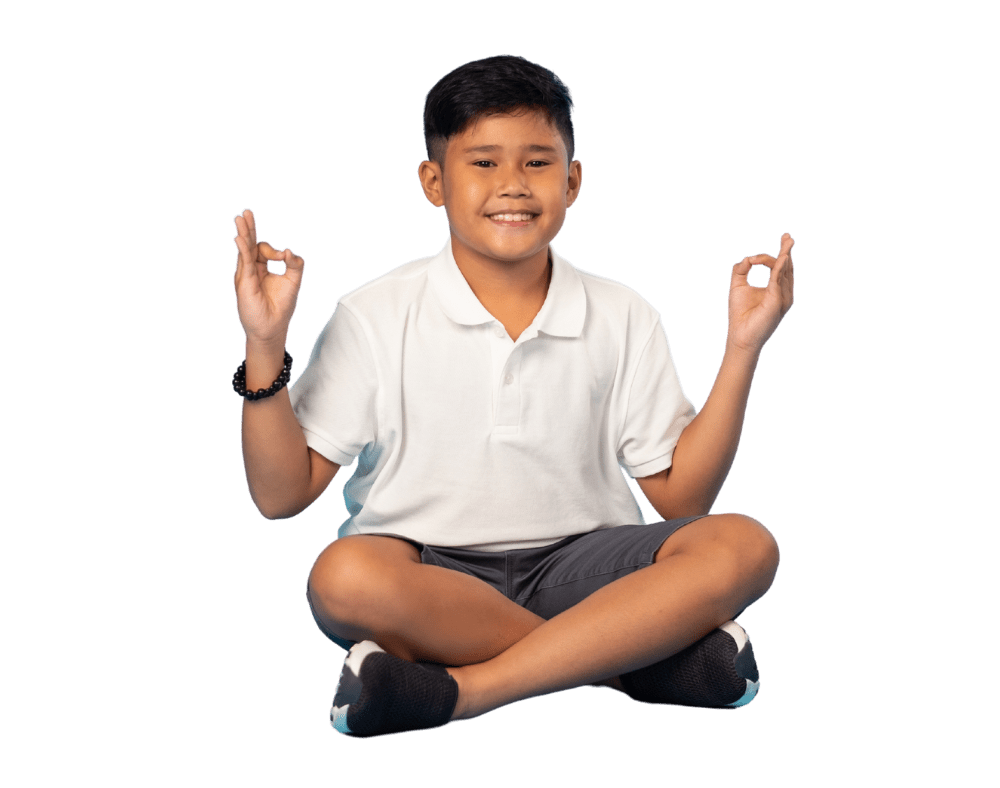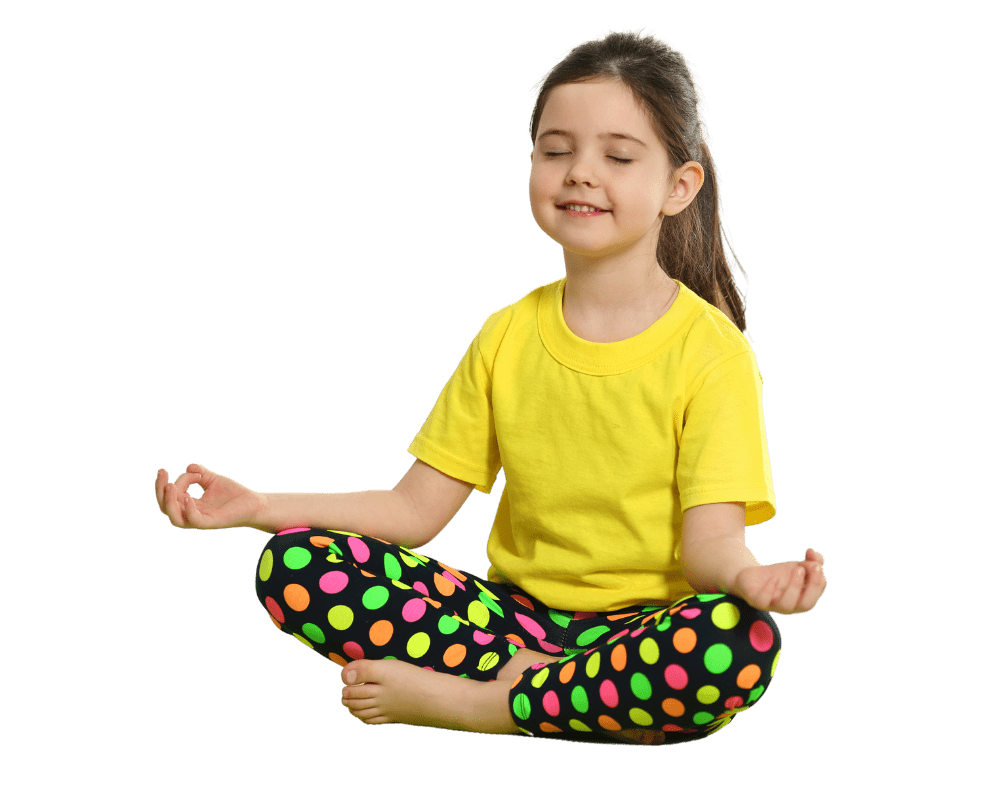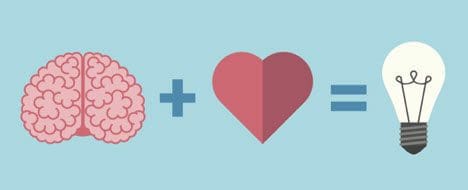
Children are whole beings- body, mind, and spirit. They are not just their thinking minds that are able to solve math equations or remember the importance of Dr. Martin Luther King Jr.’s lessons on peace and tolerance. They are their physical bodies, that can sometimes be in pain with a stomach ache or sprained ankle. They are emotional beings; whose feelings get hurt when their friends shun them or who get embarrassed when they don’t do well on an assessment.
School is often synonymous with the measurement of intelligence. Historically school has taught “higher-order thinking” skills; including problem-solving, sequencing, planning, cause and effect, understating main ideas and details, etc. These skill sets, necessary to be successful in traditional education, are associated with the Neocortex. It is the last part of the brain to develop and is referred to as the “executive functioning” center. Executive functioning is much like the roof on the house. You place the roof after the foundation (establishing a safe space) is secure and after the walls (caring relationships with teachers and peers) are established. Executive functioning must, then, be the last thing educators consider with regard to teaching any student. Because without a solid foundation and sturdy walls, there is no way to get the roof up! Today’s educators are looking at children and understanding there is more to school than teaching curriculum.
Schools all over the country are reopening, but there is a shift in their focus. The nation is still sorting through how to balance quality education with supporting children as whole beings. Our educational systems are considering the question, “How do we run schools with integrity for the curriculum while keeping kids safe from the COVID-19 pandemic?”. Now, more than ever, the social-emotional considerations for students is taking precedence.
Social Emotional Learning (SEL) is defined by the Collaborative for Academic, Social, and Emotional 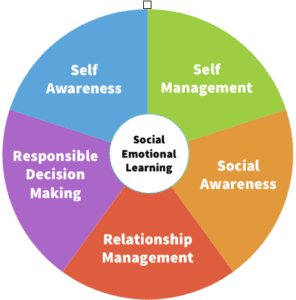
Did you know that children’s yoga programs, like the one KAY instructors from all over the globe offer, are the embodiment of providing these competencies and helping children gain the SEL skills they need to not only be good learners but to be happy and healthy people? Let me explain how yoga skills and techniques can be perfectly paired with each of CASEL’s 5 SEL Competencies.
- Self-Awareness
In yoga class, students learn to be mindful of how they are feeling in the moment, and not to judge this feeling as “good” or “bad.” A person must be able to identify an emotion or feeling to then be able to work through calming down unsettling and difficult circumstances. Yoga gives children time and space to experience these emotions. Yoga asana (poses) practices also allow for a great deal of variety. Yogis are given diverse options in each position and are encouraged to place their bodies in the variation that feels good to them.
- Self-Management
Breathing techniques and yoga class are like salt and pepper on the dining room table. They are always there, and they are always together. Learning how to take long, deep, purposeful breaths is standard in every KAY class. KAY teachers know how to also incorporate game-like breathing techniques to add the element of fun that every kid loves. You see, when we slow down our breathing, we calm our nervous system. And when the nervous system is calm, we manage ourselves more appropriately.
- Social-Awareness
Social awareness is the ability to mindfully understand what is going on in the environment and with the people around you. Understanding nonverbal cues such as body language, gestures, and tone of voice helps us realize our situations. When our friends, teachers, and families are not in a great mood, or having a bad day, simply giving them space and being kind can really help. In yoga, our mats symbolize a special personal space in which we learn how to be kind to ourselves and others through asana practice.
- Relationship Skills
Relating to others in a positive and helpful way is a natural extension of being socially aware and of being mindful of one’s own attitudes, moods, thoughts, etc. Yoga teaches us to be kind to ourselves. When we allow ourselves to make mistakes without being judgmental or critical, we learn to also give others room to grow. Healthy, supportive, kind relationships are proven to be the number one determining factor of children’s success in schools!
- Responsible Decision Making
Choosing a response that is kind to yourself and others, especially when overwhelmed with strong and unpleasant emotions, is hard to do. In fact, we instinctively will react with anger or withdrawal (fight or flight) when we feel threatened. Yoga uses many strategies to develop the skill of fostering good decision-making. Some of these include:
- Pranayama to soothe the nervous system
- Meditation to calm and relax the mind
- Visualization to practice thinking positively
- Tensing and relaxing muscles to rid oneself of anxiety and stress
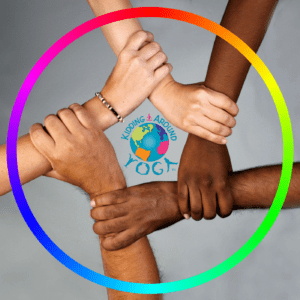
And if you want to take part in a great discussion about self-regulation and yoga tools for the whole family, listen to our podcast, Mindful Conversations with KAY! Plus, we have more blogs about SEL tools and practices:
Yoga as a Social Emotional Tool: https://kiddingaroundyoga.com/blog/yoga-social-emotional-play-based-movement/
Boost Your EQ: https://kiddingaroundyoga.com/blog/eq-iq-yoga-compassion-emotional-intelligence/
Like what you read here? There’s so much MORE to explore and learn with Kidding Around Yoga. Check out our website for our live and online teacher trainings, Yoga Alliance-approved 95-hour RCYT trainings, specialty online courses, original music, merchandise, podcast, and beyond! KAY even offers a 6-hour workshop designed to teach school educators and homeschool families how to bring yoga and meditation right into their classrooms (EduKAY) and an online course specifically for families to incorporate these practices in their family’s routine (Mindful Parenting)

